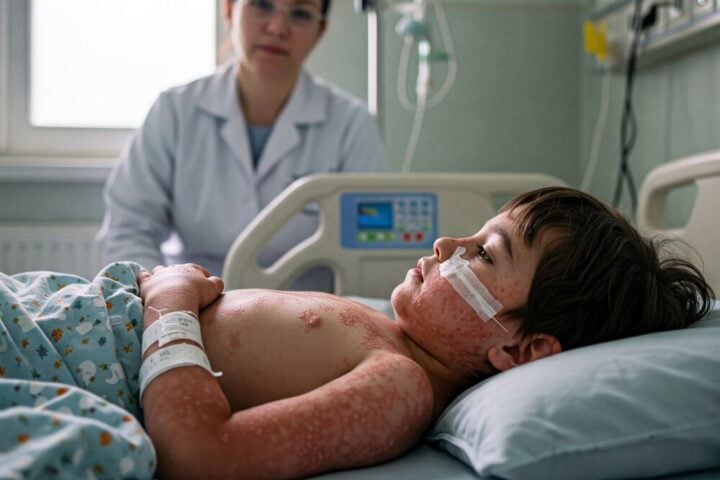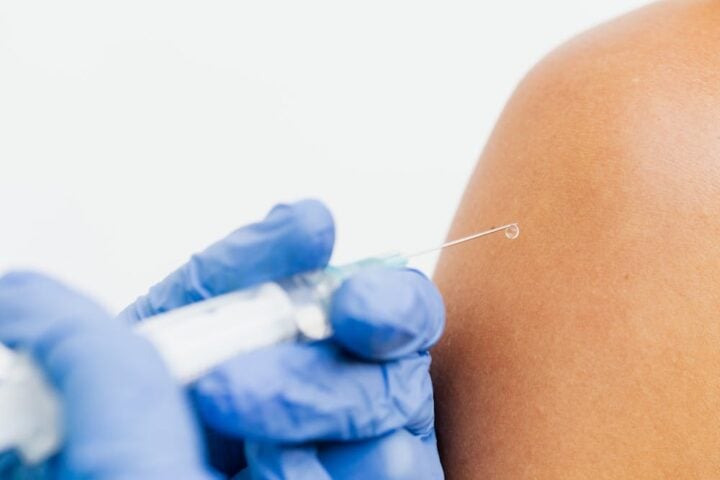The Food and Drug Administration (FDA) has canceled a key meeting scheduled for March 13 that was meant to discuss the selection of flu strains for next season’s vaccines. The cancellation came without explanation, leaving experts concerned about potential delays in vaccine production ahead of the next flu season.
This marks the second federal vaccine advisory panel meeting canceled since Robert F. Kennedy Jr. took over as Health and Human Services (HHS) Secretary. The CDC’s vaccine advisory committee meeting was also recently postponed.
“What is the plan for picking this year’s flu strain?” asked Dr. Paul Offit, a pediatric infectious diseases expert at Children’s Hospital of Philadelphia and member of the FDA advisory committee.
The timing is particularly concerning as the U.S. faces a severe flu season, with 86 children and 19,000 adults having died from the virus so far, according to CDC data.
The FDA typically holds these meetings every spring to get expert recommendations on which strains should be included in upcoming flu vaccines. This timeline is crucial because flu vaccine production requires several months of lead time.
“I’m quite shocked,” said Norman Baylor, former director of the FDA’s Office of Vaccine Research and Review. “The VRBPAC is critical for making the decision on strain selection for the next influenza vaccine season.”
The World Health Organization (WHO) is scheduled to meet on Friday regarding flu strain selection for the Northern Hemisphere. These recommendations typically influence the FDA’s decisions. However, President Donald Trump issued an executive order in January to begin withdrawing the U.S. from the WHO, and federal health officials were to stop communicating with the organization.
Similar Posts:
For the current 2024-2025 flu season, manufacturers supplied about 148 million vaccine doses to the U.S. The impact of this cancellation on next season’s vaccine availability remains unclear.
Some public health experts fear the cancellations reflect broader concerns about the new administration’s approach to vaccines. Lawrence Gostin, director of the O’Neill Institute for National and Global Health Law at Georgetown University, called this a “clearly emerging pattern to undermine, even eliminate, scientific advisory committees at HHS.”
“I fear that Secretary Kennedy is implementing his long-held skepticism of science and scientific evidence,” Gostin added.
During his confirmation, Kennedy denied being anti-vaccine, saying he simply wanted more data and pledged not to undermine confidence in vaccines. However, he has been critical of federal vaccine advisory committees, arguing that federal agencies are captive to the industries they regulate.

“We will remove conflicts of interest on the committees and research partners whenever possible, or balance them with other stakeholders,” Kennedy said in recent remarks to HHS staff.
The timing of these cancellations is particularly troubling given recent public health developments. Texas health officials reported that an unvaccinated child died from measles, the first such death in a decade, amid an outbreak that has led to at least 124 cases, mostly in children.
“It’s a bad day for infectious diseases,” said Dr. Ofer Levy, director of the precision vaccines program at Boston Children’s Hospital, who has advised the FDA on vaccines.
FAQs
- What is the FDA meeting that was canceled?
The FDA canceled a Vaccines and Related Biological Products Advisory Committee meeting scheduled for March 13. This meeting was meant to discuss and select the flu virus strains that would be included in the upcoming flu season’s vaccines. These meetings are critical for ensuring timely vaccine production.
- Why is the timing of this cancellation concerning?
The timing is concerning because flu vaccine production requires several months of lead time, especially for vaccines grown in eggs. Delays in selecting strains can disrupt the entire production timeline and potentially lead to vaccine shortages. Additionally, the U.S. is currently experiencing a severe flu season with 86 children and 19,000 adults having died.
- Who is Robert F. Kennedy Jr. and what is his role in this situation?
Robert F. Kennedy Jr. is the current Secretary of Health and Human Services (HHS), which oversees the FDA. He has been described as having anti-vaccine views in the past. This meeting is the second federal vaccine panel meeting that has been canceled or postponed since he took office, raising concerns about his influence on vaccine policy.
- How are flu vaccine strains typically selected?
Flu vaccine strains are typically selected through a collaborative process. The World Health Organization (WHO) holds meetings to recommend strains for the Northern Hemisphere, and these recommendations typically influence the FDA’s decisions. The FDA then convenes its advisory committee to finalize strain selection for U.S. vaccines.
- What might be the impact of this cancellation on next year’s flu season?
The impact is uncertain, but experts worry it could delay vaccine production, potentially leading to shortages or reduced effectiveness of next season’s flu vaccines. For context, manufacturers supplied about 148 million vaccine doses for the current season, and any disruption to this supply chain could affect public health.
- Is this cancellation part of a larger trend?
Yes, this appears to be part of a pattern. The CDC’s vaccine advisory committee meeting was also recently postponed. Some experts see these cancellations as reflecting a broader approach by the current administration toward scientific advisory committees, particularly those related to vaccines. President Trump also issued an executive order to begin withdrawing the U.S. from the WHO.


















